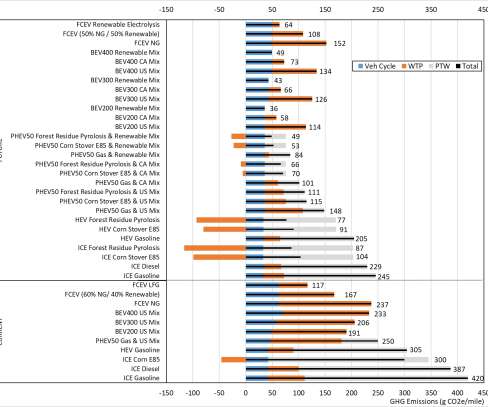DOE: Life cycle GHG emissions for 2020 electric small SUV were half those of a conventional gasoline small SUV
Green Car Congress
OCTOBER 19, 2021
Using current technologies, all evaluated biofuel, battery electric, and hydrogen fuel cell vehicle pathways offer significant C2G GHG emissions reduction compared to the current gasoline internal combustion engine vehicle. Key assumptions for these two scenarios (e.g., powertrain efficiency, component weights, etc.)








































Let's personalize your content